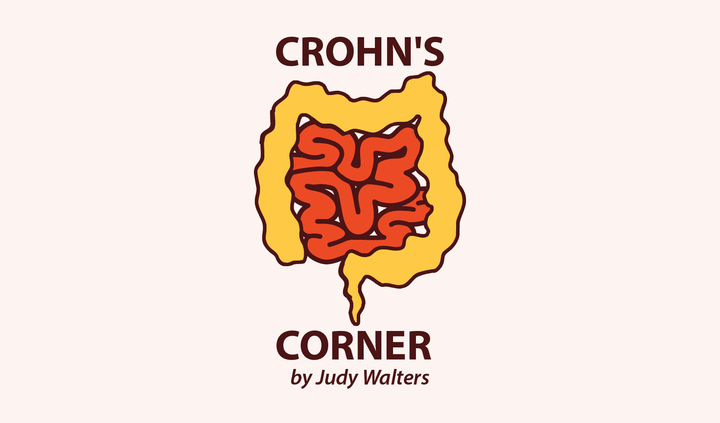I remember when my internist first recommended a gastroenterologist to me. I was 32 and had never seen any doctors besides my internist, an OB-GYN, and a dermatologist, so I was nervous. What would going to a specialist be like? Would it be a lot different than going to a “regular” doctor?
It turned out that my internist referred me to a great GI. I appreciated that she was female. It’s hard to find a female gastroenterologist, and back then it was even harder. She was not only quite skilled in all matters gastroenterology, but she was warm and funny and I felt like she really listened to me. On my first visit, she was able to do a sigmoidoscopy, which I had not expected. I was not sedated, but she talked me through it and made it seem not so bad.
When she told me that I would need a colonoscopy, she did so as if I was scheduling a massage or a pedicure. It was a breezy thing, something I would be doing in my spare time. When I told her there was no way I could do the typical prep — I gag on anything that I can’t stand the taste of and I can’t get a lot of liquid down at once — she worked with me to find an alternate prep I could live with. Just feeling I could bargain that point made me feel much more in control of the whole situation. (Deep down, I realize I am not). I had five more colonoscopies, and each time she worked with me to fine-tune the prep so we could find something that worked for me.
I was with that doctor for 15 years, and it felt like we were working together. I liked that she did everything she could to keep me out of the hospital. I liked that she was very flexible with tests and treatments, just like she had been with that first colonoscopy. And she sympathized when there were some I just couldn’t do. She was always understanding about the worst of being sick. When I came into her office she made me feel as if I was her only patient. (The typical wait for new patients is three to four months, so I know I’m not her only one.)
But one day, almost two years ago, she told me she didn’t think she could help me anymore. Though she was brilliant, loved sharing the latest information and had taken care of me for a long time, she felt I needed someone who was actually doing research, who was on the forefront of everything IBD, who had connections to whatever the National Institutes of Health and the pharmaceutical industry were doing. She recommended I see a doctor at a large teaching hospital in a city about an hour.
I was dubious. I wanted to stay with her, but she was adamant. So, I made the requisite appointment. I waited four months and went to see my new doctor. I was skeptical, to say the least. I LOVED my old doctor. How could I possibly like another the way I liked her?
It turns out, I do. I will say that going to a large teaching and research hospital instead of a private doctor’s office means that the waiting area and exam rooms are nothing to be impressed with, but I don’t care about that at all. It takes longer to get there, and parking in a city, of course, is frustrating and costs a pretty penny. I have to give up most of one day to get in, see the doctor, and come back. And, because he’s in a different state, it’s harder to arrange for regular infusions of anything because he can order them only there and I would prefer doing them where I live.
But the doctor himself — fantastic! Like my old doctor, he tells me to call him by his first name. Like my old doctor, he has a great sense of humor and is really into immunology and loves the whole thing. He gets excited by new medications and studies. He has amazing empathy toward my illness, always saying how bad he knows it is, how limiting, how he knows the options are awful. He always makes me feel like his only patient. He tries to keep me out of the hospital. He ends every appointment with a hug and tells me to call him anytime I’m not feeling well, saying it as if he misses me when I don’t call.
With him, I feel just as listened-to and taken-care-of as I did with my old doctor. And, although I miss her, I know I got equally lucky this second time around.
Note: IBD News Today is strictly a news and information website about the disease. It does not provide medical advice, diagnosis, or treatment. This content is not intended to be a substitute for professional medical advice, diagnosis, or treatment. Always seek the advice of your physician or other qualified health provider with any questions you may have regarding a medical condition. Never disregard professional medical advice or delay in seeking it because of something you have read on this website. The opinions expressed in this column are not those of IBD News Today, or its parent company, BioNews Services, and are intended to spark discussion about issues pertaining to IBD.


